
When you gaze at the list of shareholders of MCX, the beleaguered commodity stock exchange, you will be stunned to see that almost all the savvy investors are sitting pretty in it with a sizable holding.
Rakesh Jhunjhunwala, the Badshah of Dalal Street, as usual, rules the roost with a holding of 20,10,000 shares. Radhakishan Damani, the investing legend, holds 6,82,247 shares. Prof. Shivanand Mankekar, the genius stock picker, is a recent entrant with 6,50,000 shares. The other big-ticket investors in MCX are Kenneth Andrade’s IDFC Mutual Fund and Prashant Jain’s HDFC Mutual Fund.
To understand the nitty-gritty of MCX, we have to turn to the expert analysis by Ankur Shah of ‘value investing India report’. It may be recalled that at the height of the NSEL scam & crises, when MCX was available at a throwaway price, Ankur Shah had argued that MCX should be bought on the logic that MCX had only suffered a “reputation loss” but had no “financial or legal liability’.
Now, in his latest article, Ankur argues that though MCX is no longer “undervalued”, it still merits a buy on the basis that it has an “excellent business” with an “84.9% market share in India’s commodities futures markets”. He also points out that MCX has a “moat” and that unseating it from its market leading position will be difficult.
Rakesh Jhunjhunwala also provided clear cut advice in his Diwali interview. He equated MCX to what CRISIL was in 1999. He called MCX “unique” and in an “unassailable” position. His words are worth quoting:
“If I want to have an investment in India’s financials, MCX is best because unique. It is a play on the trading and the hedging and the liquidity and the growth of Indian markets. To establish a near monopoly with 85-90 percent market share in commodities, I think it is unassailable position.”
Ravi Dharamshi of ValueQuest echoed the same logic in his latest interview. He said “Exchanges are wonderful businesses” because they enjoy 50% plus margins, have limited capital cost and are highly scalable. He equated buying MCX to buying the National Stock Exchange (NSE) in the early 90s when it was still in a development phase. He explained that there is huge scope available for MCX (such as opening of commodity markets to financial institutions or FIIs and introducing products beyond one month or options) and that it is now in the hands of a very good promoter.
The fact that Prof. Shivanand Mankekar has recently bought a huge chunk of 6,50,000 shares is another indication that MCX has a bright future ahead of it.
However, a dissenting opinion is provided by Prof. Sanjay Bakshi in his piece “Why I Still Don’t Like MCX” (pdf). The essence of the Prof’s argument is that MCX’s business is that of a “casino” or “gambling” and that it is “not good for civilization”.
From what I can make out, Prof. Bakshi’s allergy to MCX stems from sentiment, emotion & ethics. Perhaps, he has had a bad early-life experience that has put him off gambling and casinos. It is not a “hard nosed” “business approach” that is putting him off MCX.
So, in these circumstances, now the ball is in our court to decide what to do about MCX.
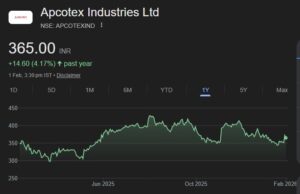
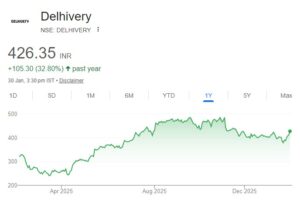
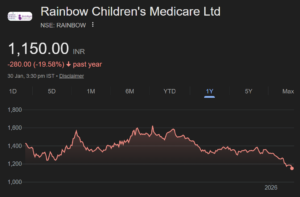
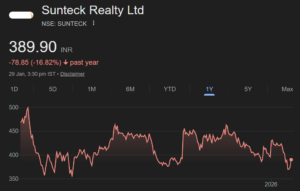
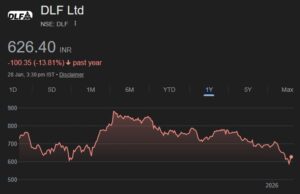
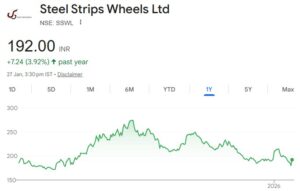
Kotak Bank stake in MCX.
If Kotak is pulled up for DLF irregularities then will it effect MCX ?
Comments from another article http://rakesh-jhunjhunwala.in/ravi-dharamshi-of-valuequest-reveals-favourite-stocks-in-portfolio/
November 4, 2014 at 12:44 am | Permalink
I think promoter of mcx has changed and its owned by kotak group now hence the positive stance. Although I am not totally sure about this and whether kotak group has fully overtaken the management if anyone would like to clarify on this.
Reply
Meenakshi Razdan’s Gravatar Meenakshi Razdan
November 4, 2014 at 12:59 am | Permalink
Kotak Mahindra Bank has bought 15 per cent equity stake in Multi Commodity Exchange of India (MCX) to for a consideration of Rs 459 crore from FTIL. FTIL’s shareholding in MCX is now nil. (http://www.moneycontrol.com/news/business/ftil-exits-mcx-completes-15-stake-sale-to-kotak-mah-bk_1192102.html)
Reply
Satoria
November 4, 2014 at 5:53 pm | Permalink
Going by the below article, I do not think MCX is safe in Kotak’s hand:
http://www.moneylife.in/article/stop-punishing-investors-for-the-actions-of-rogue-promoters/39204.html
DLF fiasco:
‘ Were investment bankers involved in the scheme? Kotak Mahindra was one of the lead managers. Its associate, Kotak Bank, provided loans to the three housewives (married to DLF’s managers) to buy the shares of Sudipti Estates to create the fiction of an independent company. ‘
‘ Why did SEBI not act against the investment bankers, Kotak Mahindra, who certify that the disclosures in the prospectus are true, fair and adequate? In this case, the involvement of the investment bankers is evident. Is it because SEBI officials know that the pressure to delay action against the realty giant had nothing to do with the investment banking community and was entirely about the promoter’s clout?
We know that too; but, by ignoring the statutory role of investment bankers, it encourages them to collude with dubious management and makes a mockery of the checks & balances built into the regulatory processes. Only if they are forced to pay a price, will investment bankers take their job seriously, instead of bleating about being guided by lawyers and audit firms.’
Kotak Mahindra bank is over ambitious and carries risky assets till date. Growth is important part of business but in banking sector risk consideration is higher than growth.
That is where HDFC bank stands higher. This banker understands the risk better than all.
It had moat but allowing BSE to establish commodity exchange would start new competition
What is your view on Camson Bio Technologies, Dharmesh Kant of India Nivesh Sees 70% upside with the target price of 252.
Now Market is very Diversify, Everyone should have trade with check all level, any time u will get loss